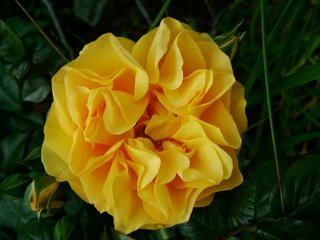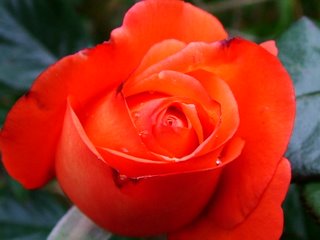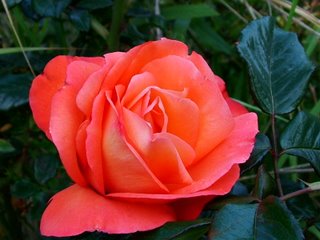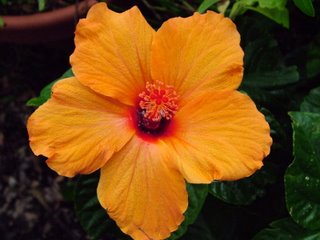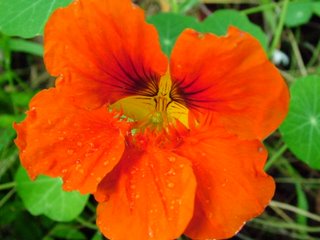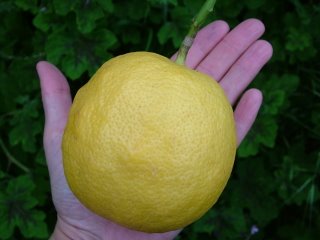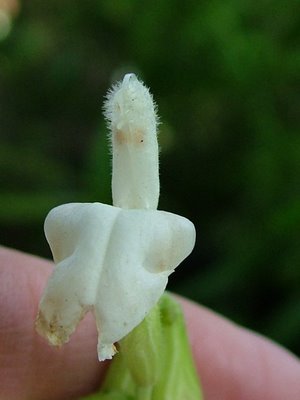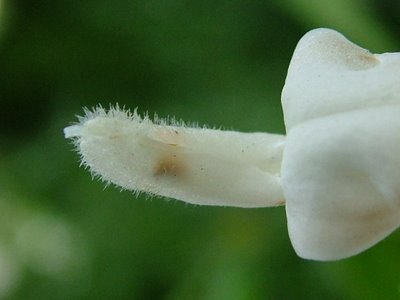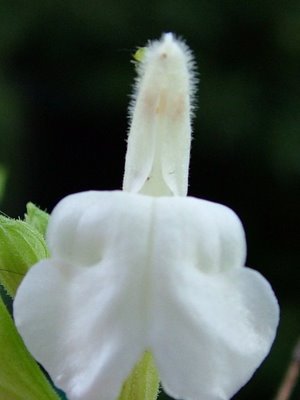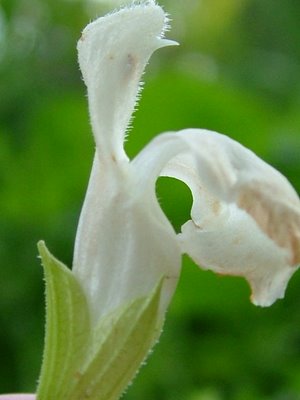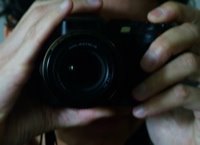
True reds are hard to find. No matter the type of flower, seekers after red often end up with a plant which produces blooms in hues of dark pink or even orange. "How could anyone call this red?" we cry when the blood-colored blossom we anticipated opens in fuschia.
Mix-ups at the growers? Mislabeling at the nursery? Probably.
But perhaps, like the camera eye, each human eye perceives color just a little differently; hence, one man's red is another's magenta.
The Martha Washington geranium (pelargonium) pictured here is, to the photographer's naked eye, a much deeper red than the camera was able to interpret. The first impressions were on the pink side. This shot comes closer to "reality," but is still not quite correct.
The camera eye has got some neat tricks, but it has yet to master all those of the human eye.
